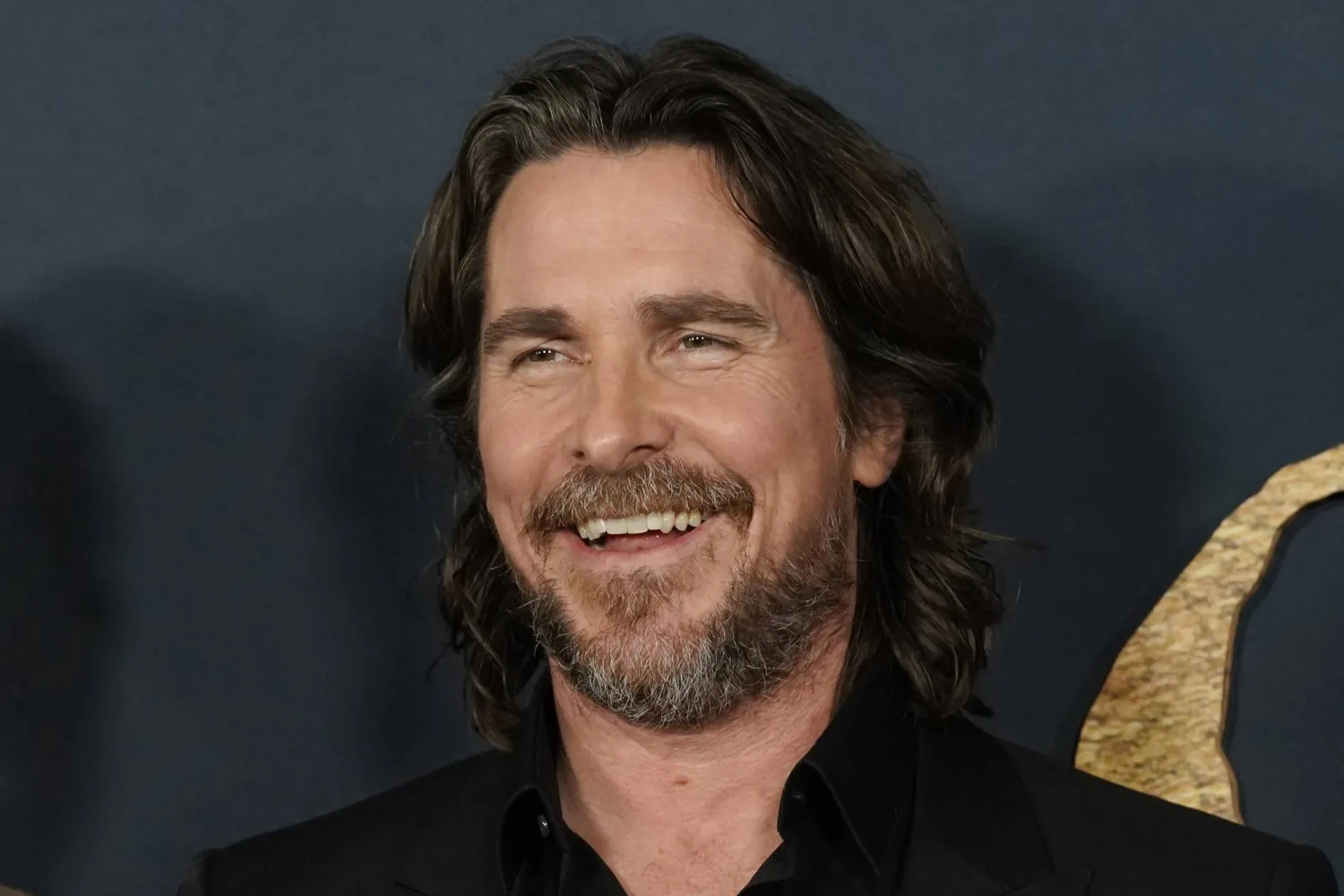Christian Bale broke ground Wednesday on a project he’s been pursuing for 16 years -- the building of a dozen homes and a community center in Los Angeles County intended to keep siblings in foster care together.
The Oscar winner stood with a grin and a shovel full of dirt alongside local politicians and donors in the decidedly non-Hollywood city of Palmdale, 60 miles (80 kilometers) north and across the San Gabriel Mountains from Los Angeles, The Associated Press reported.
But Bale, who was Batman in director Christopher Nolan 's “Dark Knight” trilogy, wasn't just playing Bruce Wayne and lending his name and money to a charitable cause.
The project was his brainchild and one he's long lent his labor to, getting his hands dirty and on Wednesday standing in actual mud after a historic storm on a hard-won site he'd visited many times before.
"I would have done it all if it was just me by myself here," Bale told The Associated Press in an interview on the large vacant lot between a public park and a bowling alley.
The British-born Bale has lived in California since the early 1990s and sought to build the community after hearing about the huge number of foster children in LA County, and learning how many brothers and sisters had to be separated in the system.
That was around 2008, the time of “The Dark Knight,” when his now college-age daughter was 3 years old.
“I didn’t think it was going to take that long,” he said. “I had a very naive idea about kind of getting a piece of land and then, bringing kids in and the brothers and sisters living together and sort of singing songs like the Von Trapp family in ‘The Sound of Music’. ”
But he then learned "it's way more complex. These are people’s lives. And we need to be able to have them land on their feet when they age out. There’s so much involved in this.”
Bale visited Chicago, spent several days in children and family services meetings. From there, he recruited Tim McCormick, who had set up a similar program, to head the organization that became known as Together California, a group Bale would co-found with UCLA doctor Eric Esrailian, a producer on one of his films.
"He said we've got to do this in California," McCormick said. "To his credit, through all sorts of challenges, COVID and everything else, he never gave up."
The men eventually found a sympathetic leader in LA County Supervisor Kathryn Barger, and in Palmdale, a semi-rural city of about 165,000 people, found a city with both a need and a willingness to take part.
The 12 homes, anchored by the community center, are set to be finished in April of 2025.
“It’s something that is incredibly satisfying for me, and I want to be involved every step of the way,” Bale said. “Maybe this is the first one, and maybe this is the only one, and that would be great. But I’m quietly hoping that there’ll be many of these.”
The 50-year-old Bale, who began acting as a child in films including Steven Spielberg's “Empire of the Sun” and the Disney musical “Newsies,” won an Oscar for best supporting actor for 2010's “The Fighter.” He's also starred in “American Psycho,” “Vice” and “Ford v Ferrari.”
Christian Bale Breaks Ground on Foster Homes he's Fought for 16 Years to See Built

FILE - Christian Bale and cast members in "The Pale Blue Eye," share a laugh at the premiere of the film, Wednesday, Dec. 14, 2022, at the Directors Guild of America in Los Angeles. (AP Photo/Chris Pizzello, File)

Christian Bale Breaks Ground on Foster Homes he's Fought for 16 Years to See Built

FILE - Christian Bale and cast members in "The Pale Blue Eye," share a laugh at the premiere of the film, Wednesday, Dec. 14, 2022, at the Directors Guild of America in Los Angeles. (AP Photo/Chris Pizzello, File)
لم تشترك بعد
انشئ حساباً خاصاً بك لتحصل على أخبار مخصصة لك ولتتمتع بخاصية حفظ المقالات وتتلقى نشراتنا البريدية المتنوعة







